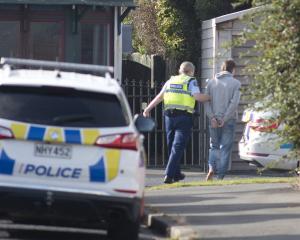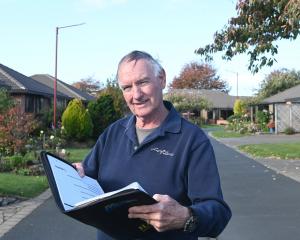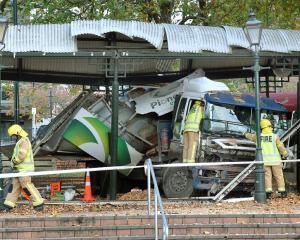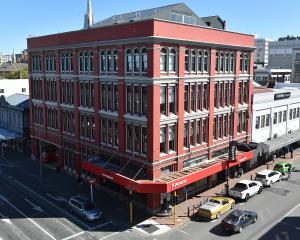
About 120 people attended a housing summit organised by the Dunedin City Council and the Mayor's Taskforce on Housing in Dunedin yesterday.
Speakers included representatives from the city council, community housing providers, Ngai Tahu and central government, Otago Chamber of the University of Otago.
Task force chairman Cr Aaron Hawkins said after years of stability, the city was facing a decade of expansion both in terms of population and development which would and was already affecting the city's housing market.
It was the city's most vulnerable residents who were most affected by the pressures on the housing market, Cr Hawkins said.
"Our most vulnerable people need to be our highest priority in terms of supply, affordability and quality of housing."
The housing summit was just the start of the process for improving housing.
It was also an opportunity to build connections and start working on solutions to the challenges, he said.
Solutions, the summit was told, would come in a variety of forms.
Community Housing Aotearoa chief executive Scott Figenshow said any plan to address the housing problems in the city needed to be driven and developed locally.
"Many of the solutions that we need are already in the room today and are already out there in Dunedin and the wider region. We just need a lot more of them," Mr Figenshow said.
One example of a local solution was the Secure Home scheme in Queenstown, which was a partnership between the Queenstown Lakes District Council, Queenstown Lakes Community Housing Trust and local developers.
Salvation Army social housing national director Greg Foster said there were a lot of opportunities for housing organisations and others to collaborate with councils and the government to develop social housing.
The Salvation Army was spending about $50million on three new social housing developments in Auckland and the blueprint from those could be used in other areas of the country, Mr Foster said.
Community housing was another area which would need a co-ordinated focus, Ministry of Housing and Urban Development strategic purchasing general manager Andrew Plant said.
A further 55 public housing places were planned for Dunedin but there was a lack of data on the need for public housing in the city, Mr Plant said.
"We have no idea how many rough sleepers there are in Dunedin but I've seen them myself, so they are there," he said.
Feedback and information from the summit would help develop the taskforce's final recommendations to the council later this year.
Comments
What a load of virtue signaling.
The bureaucrates should be providing guidance through the building code, not roadblocks.
Every bureaucarte and excutive needs to be aware that they are a cost added to housing, regardless of their stated, best intentions.
Intentions do not equate to action.












